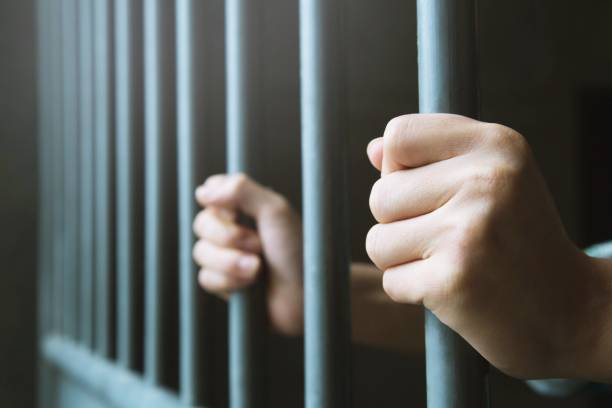State Of Karnataka vs B S Shivaprakash
18 May, 2023
Bench:Hon’ble Rajendra Badamikar
Introduction:
The Indian legal system provides provisions for accused individuals to file discharge applications under Section 227 and 239 of the Criminal Procedure Code (Cr.P.C). These applications seek exemption from facing trial based on the available evidence presented in the charge sheet. In this blog, we delve into a specific case study where the accused individuals have filed for discharge, examining the allegations, arguments, and the court’s decision.
| Statute | Section | Content |
| Code of Criminal Procedure | 227 | the Judge considers that there is not sufficient ground for proceeding against the accused, he shall discharge the accused and record his reasons for so doing. |
| 239 | If, upon considering the police report and the documents sent with it under section 173 and making such examination, if any, of the accused as the Magistrate thinks necessary and after giving the prosecution and the accused an opportunity of being heard, the Magistrate considers the charge against the accused to be groundless, he shall discharge the accused, and record his reasons for so doing. |
Background:
The study of the background starts by outlining the allegations made by the prosecution in this case. The complainant, Lokayuktha Police, registered a suo-moto case against the accused individuals (referred to as Accused Nos. 1 to 4). The charge sheet alleged that the accused, responsible officers in the Kannada and Cultural Department, misused their official powers and misplaced/misappropriated six out of 25 gold medals, causing a loss of Rs.3,12,000/- to the public exchequer. The Investigating Officer seized 19 gold medals from the custody of Accused Nos. 1 and 4.
Discharge Application:
Accused Nos. 1, 3, and 4 filed an application under Sections 227 and 239 of Cr.P.C, seeking their discharge from the case. Their defence relied on a document obtained under the Right to Information Act from the Assistant Audit Officer of the Accountant General’s Office. The document, dated five months after the charge sheet submission, was sent to the Director of the Kannada and Cultural Department, Bengaluru, requesting the deletion of specific paragraphs. The defence argued that the document revealed a mere miscalculation and not misappropriation.
Contested Arguments:
The Special Public Prosecutor contested the discharge application, arguing that the court should only consider the materials submitted along with the charge sheet. The defense’s reliance on additional documents was deemed inappropriate. The prosecutor asserted that the charge sheet and the Audit Report provided prima facie evidence of the accused’s commission of the alleged offenses. Furthermore, the argument that the Investigating Officer’s involvement tainted the proceedings was deemed irrelevant at the stage of framing charges.
The Special Judge’s Decision:
After hearing the arguments, the learned Special Judge discharged all the accused for the offenses punishable under Sections 13(1)(c), 13(1)(d) read with Section 13(2) of the Prevention of Corruption Act. The Lokayuktha subsequently filed a revision challenging this decision.
Revision and Court Analysis:
The Lokayuktha’s revision petition argued that the Special Judge committed a serious error in discharging the accused. It contended that the Judge erroneously considered the documents produced by the respondents during the discharge application hearing. The revision emphasized that the charge sheet, including the Audit Report, provided sufficient evidence to establish the offenses. The defence’s reliance on the subsequent clarification letter obtained under RTI should have been assessed during the trial, not at the discharge stage.
Analysis of the Court’s Findings:
Upon analyzing the arguments and perusing the records, the court noted several crucial points. It highlighted discrepancies regarding the number of gold medals in stock, as indicated in different documents. The defence relied on the statement of the Commissioner and a subsequent clarification letter, which contradicted earlier documents mentioning a larger stock of gold medals. The court questioned the basis for the clarification letter and whether it was considered thoroughly. It emphasized that these matters required examination during the trial.
Consideration of Evidence and Discharge Application:
The court reiterated that, ordinarily, discharge applications should be based on the materials submitted with the charge sheet. However, if the defence presents unimpeachable evidence of sterling quality, the court may consider it at the discharge stage. In this case, the court opined that the subsequent clarification letter, produced after the charge sheet submission, needed deeper scrutiny and examination, making it inappropriate to discharge the accused solely on its basis.
Conclusion:
The case study presented a scenario where the accused individuals filed discharge applications under Sections 227 and 239 of Cr.P.C. Despite the defense’s reliance on a subsequent clarification letter, the court emphasized the need for a thorough examination of evidence during the trial stage. The court’s decision to reject the discharge application highlights the importance of comprehensive evaluation and adherence to legal procedures in determining an accused’s culpability.
“PRIME LEGAL is a full-service law firm that has won a National Award and has more than 20 years of experience in an array of sectors and practice areas. Prime legal fall into a category of best law firm, best lawyer, best family lawyer, best divorce lawyer, best divorce law firm, best criminal lawyer, best criminal law firm, best consumer lawyer, best civil lawyer.”
JUDGEMENT REVIEWED BY SHREEYA S SHEKAR


